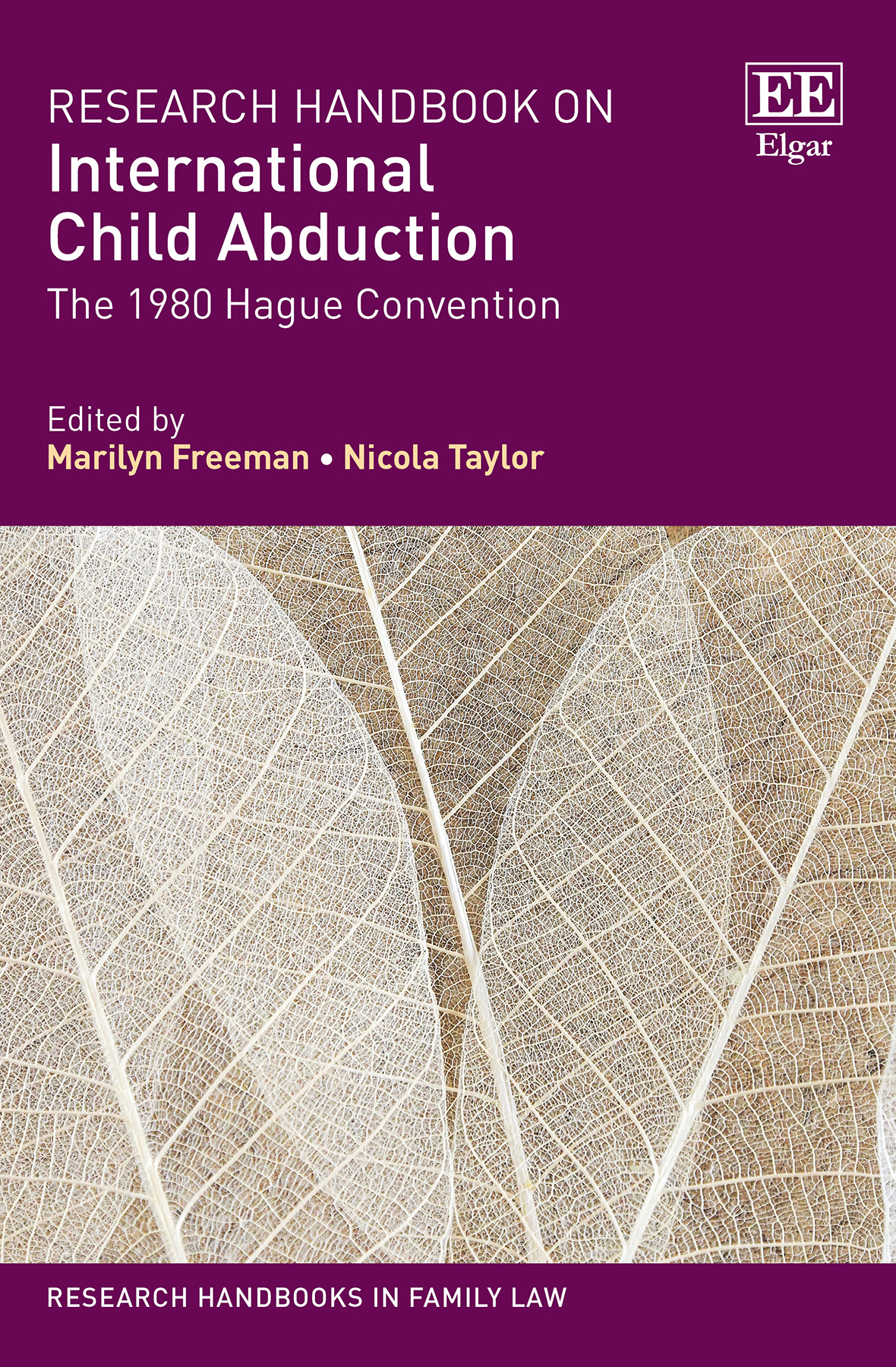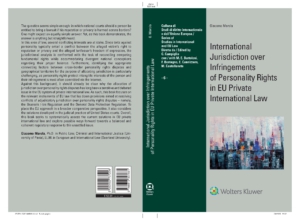Views
The Conflict-of-Law Rules in the UAE’s New Civil Transactions Act: Yet Another Missed Opportunity!

I. Introduction
On 1 January 2026, the Legislative Decree No. 25/2025 promulgating a new Civil Transactions Act (hereafter ‘NCTA’) entered into force. The NCTA repeals and replaces the former Federal Civil Transactions Act of 1985 (hereafter ‘the 1985 Act’). The adoption of the NCTA forms part of the State’s broader and ongoing effort to comprehensively update and modernize its legal system, an effort that has already touched major legislative instruments, including, among many others, the 2022 Civil Procedure Act, the 2024 Personal Status Act, the 2023 Competition Act, and the 2022 Commercial Transactions Act.
Since the 1985 Act contained a codified set of conflict-of-laws rules, its replacement necessarily entails a re-examination of the UAE’s private international law framework and, at least in principle, the introduction of new or revised choice-of-law provisions. Against this background, this note offers a preliminary and necessarily tentative assessment of the modifications introduced by the NCTA. It focuses on the main features of the new law in relation to choice-of-law regulation, highlighting both the changes introduced and the limits of the reform. Read more
Enforceability of foreign judgments for punitive damages under English law and South African law
This post is posted on behalf of Jason Mitchell, barrister at Maitland Chambers in London and Group 621 in Johannesburg.
In Motorola Solutions v Hytera Communications Corporation, the Court of Appeal held that a judgment that includes a punitive damages component is unenforceable in its entirety (the judgment is available here). The punitive component cannot be severed so that the judgment creditor can enforce non-punitive components.
Motorola sued Hytera in the U.S. One of its causes of action was under the Defend Trade Secrets Act, a federal statute that allows for punitive damages of up to double any compensatory damages. On that cause of action, the U.S. court awarded Motorola compensatory damages of $135 million and punitive damages of $270 million. Motorola tried to enforce the U.S. judgment in England. Read more
Book review: Research Handbook on International Child Abduction: The 1980 Hague Convention (Edward Elgar Publishing, 2023) – Part I

Written by Mayela Celis, Maastricht University
International child abduction is a topic that has given rise to an ever-increasing number of publications (our latest blog post attests to this trend). It easily sparks emotions among experts, sometimes triggering divergent views. However, from a global perspective, there is consensus on the basic principle: States should combat international child abductions and a child should be returned to the State of habitual residence, unless an exception is made out. In 2023, Elgar published the book entitled “Research Handbook on International Child Abduction: the 1980 Hague Convention”, eds. Marilyn Freeman and Nicola Taylor (Edward Elgar Publishing Limited, 2023). Although published a couple of years ago, it remains poignantly relevant.
This book brings together an adult who was abducted as a child, practitioners, judges, academics, NGO officials and central authority personnel. Many of the authors are at the forefront of this field and their contributions have left a long-lasting legacy in this area of law. While some topics are considered from an academic perspective, others have a more practical focus, striking the right balance between academia and practice. Read more
News
Marola on International Jurisdiction over Infringements of Personality Rights in EU Private International Law: Book Review
Giacomo Marola’s International Jurisdiction over Infringements of Personality Rights in EU Private International Law (2025 Wolters Kluwer) addresses a deceptively simple but persistently debated question: where should a claimant be entitled to sue when reputation, privacy, or personal data are infringed across borders? As the book makes clear from the outset, this question lies at the intersection of private international law, fundamental rights, and the realities of online communication. Personality rights disputes are structurally conflictual, typically opposing the protection of moral integrity to freedom of expression, while the Internet continues to strain jurisdictional rules built around territorial connecting factors. Against this backdrop, the book offers a timely and systematic assessment of the EU framework.
Chapter I constitutes the analytical core of the work. It provides a detailed examination of Article 7(2) of the Brussels I-bis Regulation and the Court of Justice’s case law on the ‘place of the harmful event’ in personality rights disputes. From Shevill to eDate Advertising, Bolagsupplysningen, Mittelbayerischer and Gtflix, Marola carefully examines the construction of locus actus and locus damni, focusing in particular on the publisher’s place of establishment, the persistence of the ‘mosaic’ approach, and jurisdiction based on the victim’s centre of interests. The chapter goes beyond doctrinal reconstruction by assessing these solutions against the objectives of proximity, predictability, and procedural balance, and by advancing a well-argued proposal de lege ferenda.
Chapter II places the EU approach in comparative perspective through an analysis of US jurisdictional doctrine in defamation and online tort cases. By retracing the path from Keeton and Calder to the rise and decline of the Zippo test and the renewed prominence of the ‘effects’ doctrine, the chapter sheds light on both convergences and structural differences. In doing so, it provides a useful corrective to overly enthusiastic transatlantic borrowings sometimes found in the European literature.
The final chapter turns to the General Data Protection Regulation and its interaction with the Brussels I-bis Regulation. Chapter III examines both public and private enforcement mechanisms, with particular attention to Article 79 GDPR and its implications for jurisdictional choice in data protection litigation. By integrating GDPR disputes into the broader analysis of personality rights, the book captures an increasingly central area of cross-border litigation.
Overall, the monograph combines doctrinal precision, critical insight, and pragmatic proposals, making it a valuable contribution for scholars and practitioners engaged with jurisdictional questions at the crossroads of EU private international law and fundamental rights.
AAPrIL’s Feb 2026 Seminar: Pitel on ‘Reconsidering the “Proper Party” Basis for Jurisdiction’
On Thursday 12 February 2026, the Australasian Association of Private International Law (AAPrIL) is hosting its first seminar of 2026, as Professor Stephen Pitel presents free online and in-person (Qld, Australia) on the topic, ‘Reconsidering the “Proper Party” Basis for Jurisdiction’.
Abstract:
In several jurisdictions the fact that a defendant is a ‘proper party’ to a legal proceeding constitutes a sufficient basis for taking jurisdiction over that defendant. Advocates of the proper party basis rely on considerations of fairness and efficiency to support it. Do these considerations support the proper party basis, especially if it is given a wide scope? Recently Canadian courts have been reconsidering their approach to the proper party basis, as seen (somewhat opaquely) in Sinclair v Venezia Turismo, 2025 SCC 27. This presentation will explore that reconsideration and offer thoughts for changes in other jurisdictions including Australia and New Zealand.
Chair:
Mary Keyes is Professor of Law at Griffith University, and President of AAPrIL. She is a leading scholar on questions of international jurisdiction and international family law. Mary is co-author of Private International Law in Australia, and is a member of the Working Group on Jurisdiction at the Hague Conference on Private International Law.
Presenter:
Stephen Pitel Stephen G.A. Pitel is a Professor in the Faculty of Law at Western University. His research and teaching are focused on private international law, tort law, civil procedure and legal ethics. Stephen is the author of Conflict of Laws (3rd ed. 2025) and co-author of Private International Law in Common Law Canada: Cases, Text and Materials (5th ed. 2023) and Statutory Jurisdiction: An Analysis of the Court Jurisdiction and Proceedings Transfer Act (2012). His tort law scholarship includes co-authoring Fridman’s The Law of Torts in Canada (4th ed. 2020) and Cases and Materials on the Law of Torts (11th ed. 2023). In the field of legal ethics, Stephen is a contributor to Lawyers’ Ethics and Professional Regulation (4th ed. 2021). He is a former President of the Canadian Association for Legal Ethics.
Details:
Date and time: Thursday 12 February 2026, 5:00pm to 6:00pm (AEST)*
Date and time Thursday 12 February 2026, 5:00pm to 6:00pm (AEST)
in person: Griffith University, Southbank, Brisbane: Room 4.03 Building S07. The map is available here.
RSVP (essential): Please register via this link by COB Wednesday 11 February 2026, and advise whether you are attending in person or online. Please access the Teams link here. There is no cost.
* NZ. 8:00pm-9:pm; ACT, NSW, Tas and Vic. 6:00pm-7:00pm; SA, 5:30pm-6:30pm; Qld, PNG. 5:00pm-6:00pm; NT, 4:30pm-5:30pm; WA, 3:00pm-4:00pm
Open Online Conference: “Cross-Border Enforcement of Child Support: Pros and Cons of the Different National Systems” on January 28th, 2026 3-5:30pm CET
The Child Support Forum in cooperation with the International Union of Judicial Officers is pleased to invite every interested stakeholders of the cross border child support recovery to an open conference on January 28th, 2026 from 3 to 5:30 pm (CET).
According to Art. 41 of Regulation (EC) No. 4/2009 and Art. 32 of the 2007 Child Support Convention, the enforcement procedure shall be governed by the law of the state of enforcement. But in practice, the prospects of successfully initiating cross-border enforcement proceedings are not always easy to assess. In order to enforce successfully, it is necessary to know the specifics of the legal system of the state of enforcement (the Requested state).
Key questions in this context are:
- What does the process of enforcement of child support looks like in different states?
- Are maintenance claims given a degree of priority?
- How do Central Authorities facilitate the ongoing enforcement of maintenance decisions?
- What are the conditions for children to be exempted from costs?
The meeting aims to review the international legal framework and provide an overview of the various national enforcement systems. Finally, the advantages and disadvantages of the different systems from a legal policy perspective shall be discussed.
The participation is free of charge but registration is required.
To register, click here.




